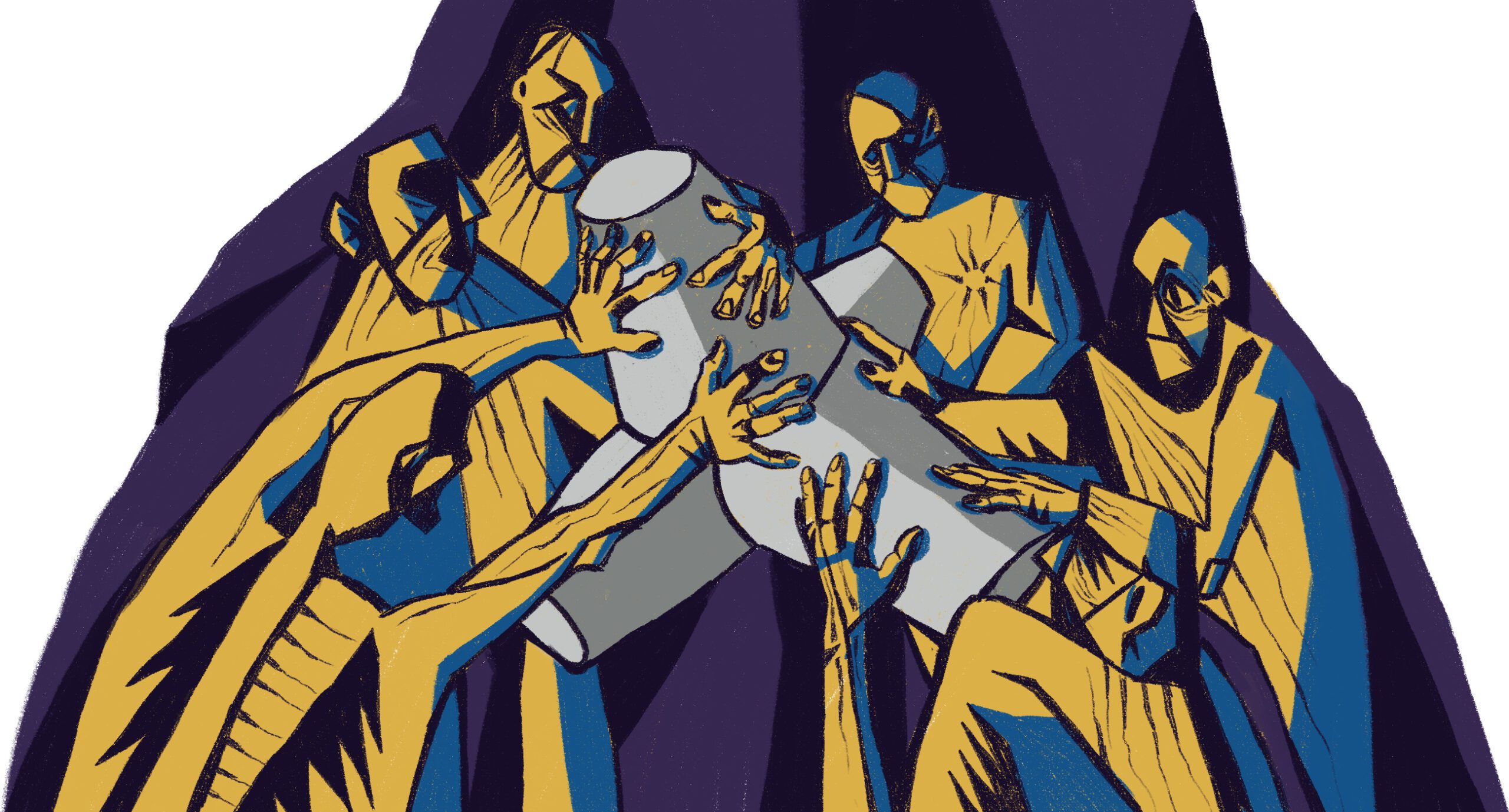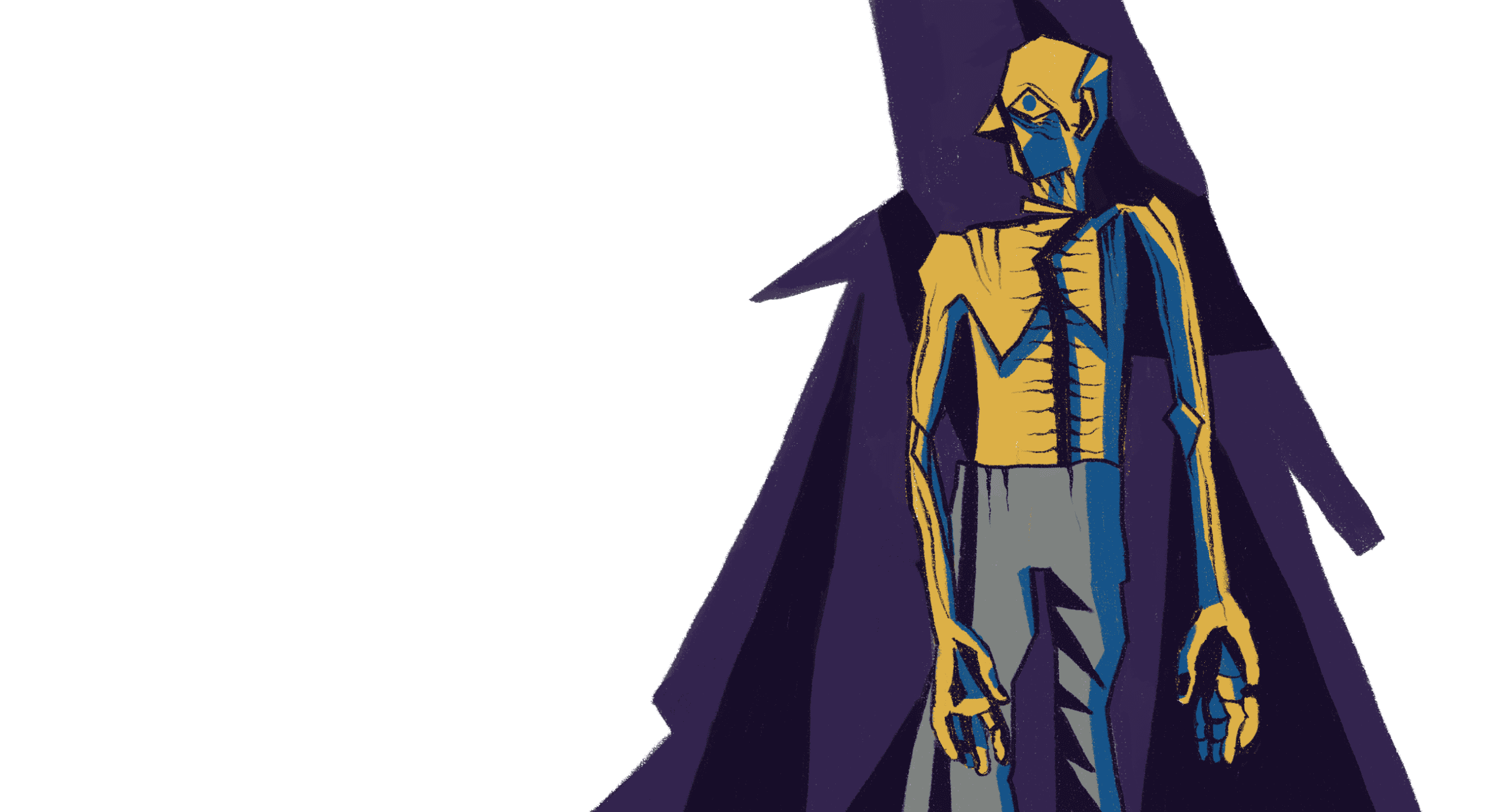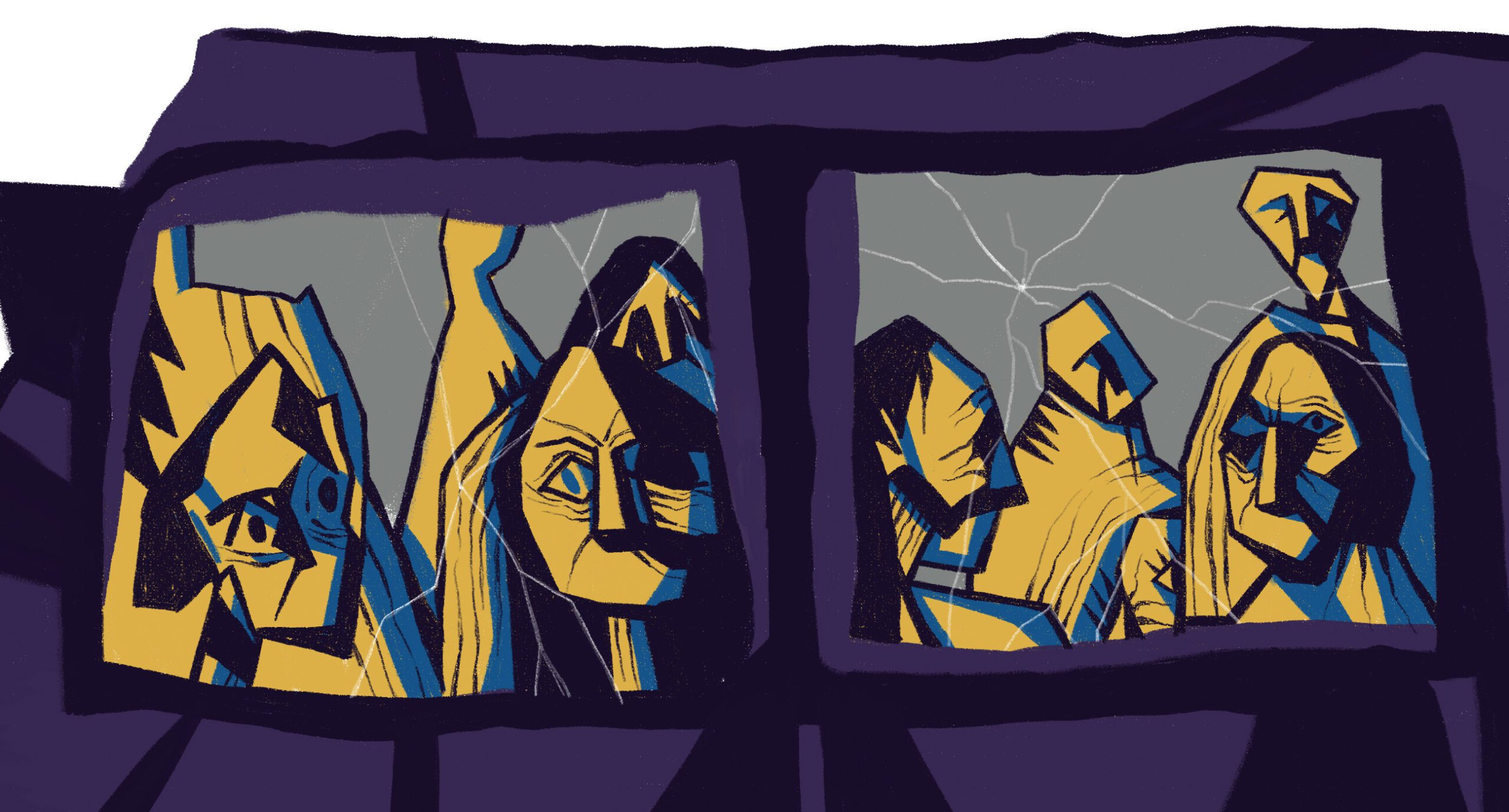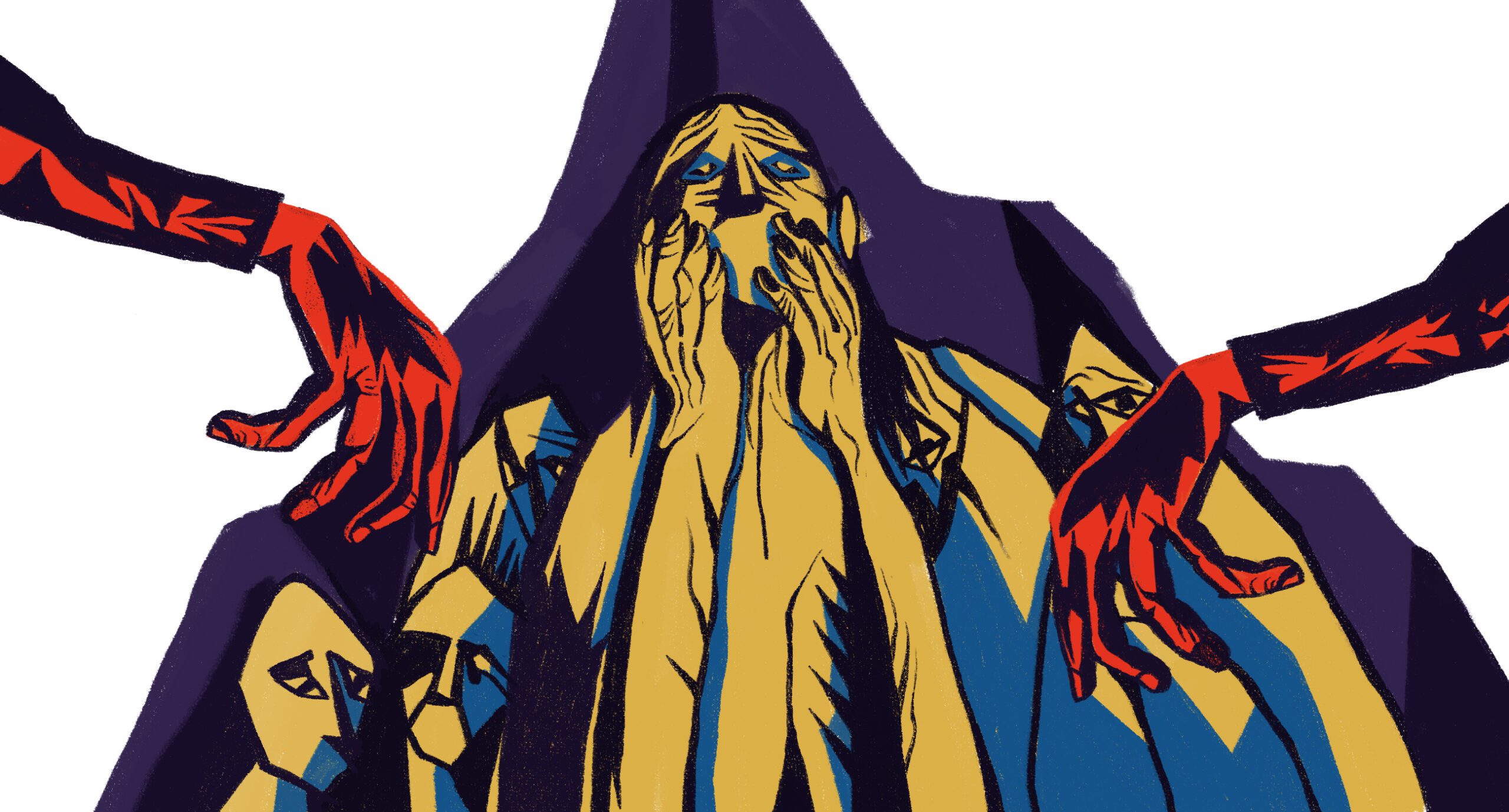Since the beginning of the war, people who have found themselves under massive shelling have been taken by occupiers to Russia or DNR. Their number reaches hundreds of thousands, and maybe more – the Russian government reports the general figure of one million “evacuees.” “I think the children were abducted,” “we are in Voronezh without documents,” “they took fingerprints and palm prints – that’s how we have been filtered,” people say. Now some of them are looking for ways to return to Ukraine, some have managed to get to Europe, while others have abandoned such opinions. Now journalist Nadiya Shvadchak in her special report for Zaborona collected stories of people who voluntarily and against it found themselves in the Russian Federation and occupied Donetsk because of the war.
Andriy (name changed at the request of the hero)
While people are in Russia, they or their relatives rarely agree to talk.
Andriy, a 20-year-old student who will leave Russia in two days, agrees. He is leaving for Ukraine because he wants to help. Now he, his 10-year-old brother and mother live with relatives. To tell his story, the guy goes outside. He speaks Ukrainian. He asks whether it is true that in Ukraine he can go to jail for ten years for illegally crossing the border with Russia. But he will return regardless of the answer.
“The fact that we managed to get out of Mariupol is a coincidence,” says Andriy. His family was taken away from Mariupol to Urzuf (Donetsk region) by acquaintances.
“We had little money, bank cards did not work there. Ten eggs cost 100 hryvnias (3.1 USD), a pack of cigarettes without excise tax – 150 (4.7 USD). The village council said that there was no food, the electricity would be turned off soon, no one would register us and we are not needed here at all. We lied that we were registered and settled in a sanatorium,” he explains. “We have been waiting in line for humanitarian aid (boxes with the letter Z, St. George’s ribbon and the “we don’t leave our people” hashtag) for five hours. The boxes ran out when there were a few people in front of us. The next day we were called to the buses. They didn’t say where they would take us. ”
Andriy and his mother and brother got into an old bus heading to Donetsk. At the DNR checkpoints, men were forced to take off all their clothes above the waist: Russians looked for tattoos and the recoil bruises on their shoulders.
-

Illustration: Kateryna Kruhlyk / Zaborona
People were housed in the school. For some time I had to sleep on desks and floors, then the locals brought mattresses. They fed us twice a day: oatmeal in the morning, tea and bread with butter, in the evening – chicken macaroni, tea and bread with butter. At first we were not allowed to leave the school, then we could do this after confirming and signing the note of leaving.
Andriy stayed in Donetsk for almost two weeks. During this time, most of the people who came with him were taken away. He had to wait until his younger brother was discharged from the hospital. Many children became ill with rotavirus and could not even drink due to vomiting.
“Then we were put on a bus and taken to the regional department. Its employees made copies of our passports and residence permits, profile and full face photos, took fingerprints and palm prints. They checked phones, looked at the photo gallery, correspondence, searched for acquaintances among the military. They wrote down the IMEI-code of the phone. Then gave me a piece of paper with a stamp, passport number and name. That’s how we were filtered.”
People were brought to the border with Russia. There the buses turned around and went back to Donetsk.
“Don’t you want to go to Russia? There’s no need in this. But there was also no choice, “says Andriy.
At the border, the Russians checked all the men again. They looked at the phone again, additionally examined the legs. Are there any bruises? Was he in a trench?
Relatives took Andriy, his brother and mother from the border.
“If you don’t have relatives, they will take you out who knows where. I spoke with a woman who was told to go to Vladivostok. She refused. She applied for ten thousand rubles aid, which is yet to be issued within three months. The locals allowed her to live with them for a few days. What should she do next? Where to look for work, how to live? Here everyone is looking at you like a wolf. The whole breadth of the “Russian soul” ends at these ten thousand [rubles]. However, some people, such as our neighbors, are offered good jobs, so they stay. My mother and brother stay, because my mother hopes to take at least some things from Mariupol when it becomes possible”, says Andriy. “I can’t stay. Everything here puts a lot of pressure on me. I’m needed in Ukraine. I understand those who stay with children, I understand pensioners, but I don’t understand when a 20-year-old guy is afraid for his ass.”
Anzhela
“It was – 10⁰ C outside; we lived in the basement, cooking in the yard. They bombed so hard that no one went further than taking the pot,” Anzhela sends audio messages from the Balkans. Her voice is tired and hoarse; she has spent the last twenty hours on the road.
How did she end up in Russia? For this, Russian soldiers were to appear in the ruined yards of Mariupol and the shelling was to subside. People had to look out, ask to leave, drain the fuel from the destroyed cars to fill up the tanks of the survived ones. But Anzhela did not have a car. And she was not alone: she had a 74-year-old mother, who had long since run out of essential medicines.
“We didn’t care who took us and where: to Africa, to Australia. They said there were buses. We walked six kilometers, got on a bus and left. We were not told where they took us.”
-

Illustration: Kateryna Kruhlyk / Zaborona
20 minutes after leaving Mariupol, Anzhela and her mother arrived in the occupied village of Nikolske in Donetsk region. People were registered and housed at the school. They had to sleep on cardboard boxes covered with things brought by locals. Buses with people were constantly arriving from Mariupol.
From Nikolske it was possible to leave for Donetsk and the Russian Federation. You could also go to Ukraine. But for this it was necessary to have a car and the courage to go under fire.
Anzhela and her mother boarded a bus to Russia: “We were going for a very long time. We stood on the border with Russia all night. I had a fever, so I was not summoned for questioning. All men and some women went there. One girl was taken away for 2.5 hours. The bus went without her.”
After crossing the Russian border, Anzhela and her mother found themselves in a tent camp, where they could have a snack and relax on one of the bunk beds.
“If you got into the sleeping bag in a fleece suit, coat, boots and hat, it’s warm. It was possible to take a nap for 15 minutes,” says Anzhela.
Then there were seven hours of travel to Taganrog and four hours of waiting for the train to fill up. People were given Russian SIM-cards and Angela contacted relatives living in Russia. A day later they met at the station in Tula.
Her relatives persuaded her to stay, because they would help her with an apartment and a job: “But I lost my city, my house, my life. Because of what? Because the aggressor country invaded my territory. How can I live there? On the streets, on the cars, on the bus, in the store, on the window – I see this letter Z everywhere. I can’t live like that. ”
Later, Anzhela accidentally saw a link to a chat in which Ukrainian citizens are helped to leave Russia. She contacted the volunteers and got prepared for the trip – the Balkan Peninsula was waiting for the refugees.
“If you have a desire, all the universe conspires in helping you to achieve it,” she says.
Olha
Olha Lopatkina with her husband, two biological and one adopted child are now in France. She catches Wi-Fi in a cafe and sends messages one after another. Among the addressees are the head of the Donetsk Regional Administration, former and current children’s ombudsmen, and Ukrainian human rights activists. In her letters, the woman either calmly and balancedly, or emotionally and sharply demands to save her six adopted children. First – from Mariupol, then – from Donetsk.
“What can I tell you? I’m in the basement right now,” the reply to the last letter says.
-

Illustration: Kateryna Kruhlyk / Zaborona
When the full-scale invasion began, Olha’s adopted children were in the Mariupol sanatorium. They lost contact on March 1. Eighteen days later, they called from Donetsk. The son said that they were taken away, and in total there are 19 taken children in the children’s tuberculosis and pulmonary department of the local hospital.
In her letter to the SBU (Security Service of Ukraine), Olha explains that no one told her that the children would be taken to Donetsk. She was waiting for them at home in Vuhledar, Donetsk region, and then in Zaporizhzhia, where she was able to evacuate with her family. The woman could not take the children out on her own because of the shelling.
When the children got in touch, they were scared and outraged that their parents had gone abroad and didn’t take them.
The children were abducted, Olha writes in an appeal to the SBU. They were detained against their will, turned against their parents, forced to hold separatist talks, offered cigarettes, and most importantly – kept in terror that they will soon find themselves in boarding schools, adopted and given away to God knows whom. The children cry and ask when Olha will take them out.
The woman believes that she will be able to return the children. She was looking for an apartment in France so that everyone had a place.
Stas
35-year-old Stas from Kharkiv together with a girlfriend and a cat went to the country for two days. They didn’t even take the documents with them. From the first days of the full-scale Russian invasion, the couple found themselves under occupation. Russians entered the village of Lyptsi in Kharkiv region, not far from the Russian Federation border. Despite the fact that the military tried to be friendly and even shared dry rations, Stas soon asked the girl not to leave the house.
The couple decided to evacuate after the shells killed the villagers, and the Russians after another search of the house said that there would be shelling soon and people will not be safe even in the cellar.
Nobody knew about the green corridor towards Kharkiv. Everyone said it was impossible. Therefore, there was only one way to evacuate – to Russia.
Stas, his girlfriend and cat left Lyptsi by bus. At the checkpoint they showed documents in the Diya app. But at the border, they were registered as undocumented people [Russia does not recognize electronic IDs]: they were fingerprinted and photographed. Military found information on Stas’s dad, asked if he had anything to do with the Armed Forces or if there were any acquaintances there.
The couple was taken to Voronezh to the Soviet-style recreation center, and settled in a separate room. The center is located near the military airfield and every time planes flew by, Stas and the girl said goodbye to life.
They were fed three times a day. There was a TV in the dining room.
“It seemed to me that some people were enjoying watching Russian TV,” says Stas. “People were mostly from villages. Some were waiting to return home, some were glad to be in Russia. Someone was ready to go abroad, but was afraid. We started looking for a way out as soon as we were given Russian SIM-cards. But it turned out that it’s not so easy to move without documents.”
The couple wrote to Ukrainian, Russian and international human rights organizations, addressed the embassies of Ukraine in different countries, the embassies of different countries in Russia. No one could help. The Foreign Ministry said to wait for the end of the war or when a third country is appointed at the international level to defend the interests of Ukrainians in Russia.
Meanwhile, the Investigative Committee arrived at the recreation center. Stas answered questions about Ukrainian troops, military facilities in Kharkiv, and whether he was on the Maidan, what he knows about Donetsk and the theater in Mariupol. “They presented it as crimes of the Ukrainian army,” Stas said. The interrogation lasted an hour. Then there was another one. Stas believes that people from the FSB held it. All the men were called.
“To get out of the Russian Federation, we had one option left: to bring documents from Kharkiv,” he says.
The apartment in Kharkiv was damaged by shelling, but the documents were sent to Lutsk, then to Warsaw, and from there to Tallinn and Moscow.
Stas, his girlfriend and cat were taken from Voronezh by a volunteer. At the Estonian-Russian border, Stas again answered the same questions, gave fingerprints, and was photographed again. But on the Estonian side they passed the checkpoint quickly.
“So far we are in Poland and have not decided what to do next. But it doesn’t matter where we will be: if the state can’t help people in Russia yet, then we can. I saw a mother and two children sitting at the border for three hours. The children had documents, and the mother had only a copy. She was told that only children would be allowed to pass. They were given ten minutes to think,” he says. “There are a lot of people who found themselves in Russia without documents. But if the documents are in Ukraine, they can be transferred. We have already established such a route from Kharkiv – we can help.”
Stas asks everyone who needs help to write to melodicbastard@gmail.com








